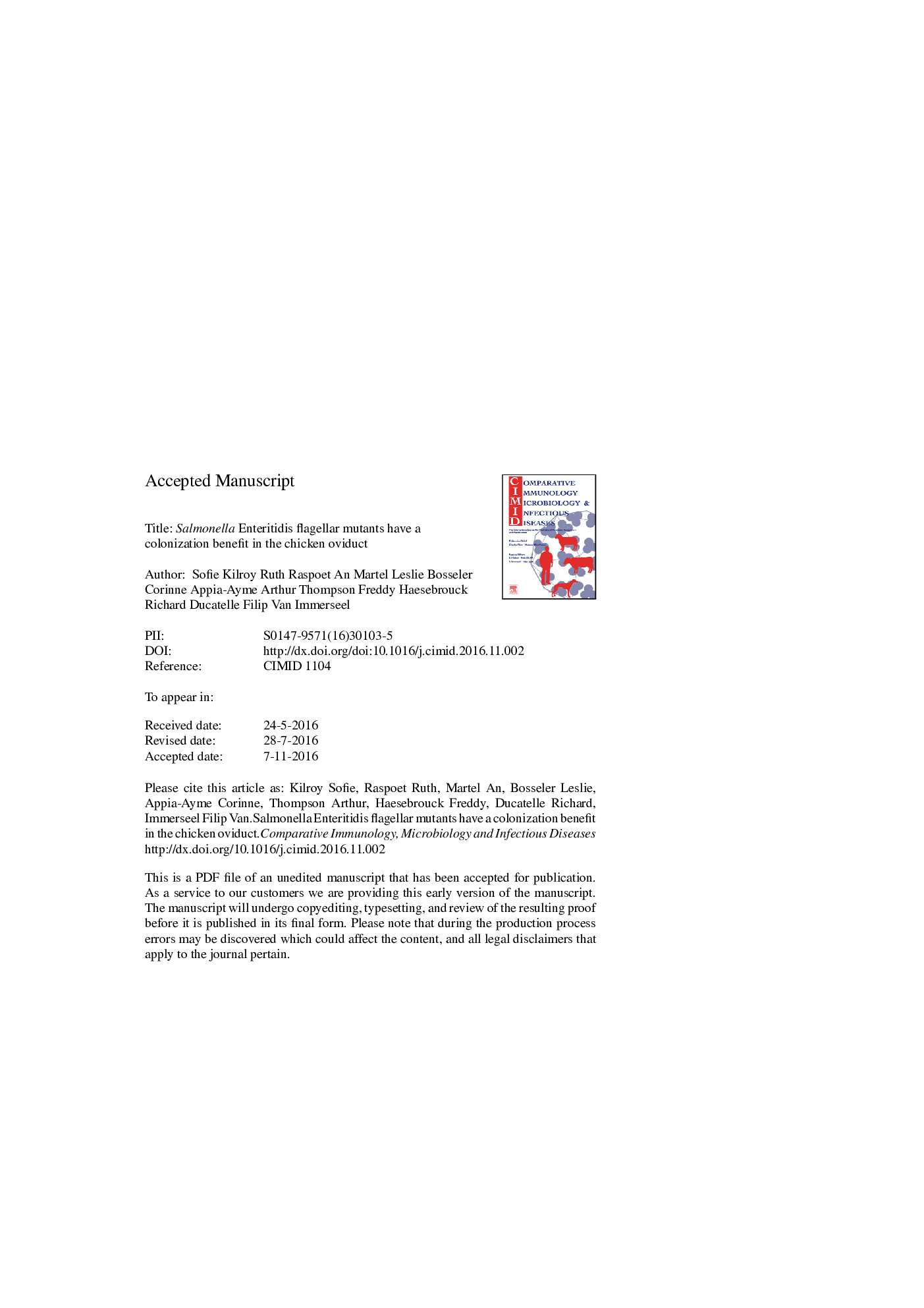| Article ID | Journal | Published Year | Pages | File Type |
|---|---|---|---|---|
| 5539869 | Comparative Immunology, Microbiology and Infectious Diseases | 2017 | 24 Pages |
Abstract
Egg borne Salmonella Enteritidis is still a major cause of human food poisoning. Eggs can become internally contaminated following colonization of the hen's oviduct. In this paper we aimed to analyze the role of flagella of Salmonella Enteritidis in colonization of the hen's oviduct. Using a transposon library screen we showed that mutants lacking functional flagella are significantly more efficient in colonizing the hen's oviduct in vivo. A micro-array analysis proved that transcription of a number of flagellar genes is down-regulated inside chicken oviduct cells. Flagella contain flagellin, a pathogen associated molecular pattern known to bind to Toll-like receptor 5, activating a pro-inflammatory cascade. In vitro tests using primary oviduct cells showed that flagellin is not involved in invasion. Using a ligated loop model, a diminished inflammatory reaction was seen in the oviduct resulting from injection of an aflagellated mutant compared to the wild-type. It is hypothesized that Salmonella Enteritidis downregulates flagellar gene expression in the oviduct and consequently prevents a flagellin-induced inflammatory response, thereby increasing its oviduct colonization efficiency.
Related Topics
Life Sciences
Agricultural and Biological Sciences
Animal Science and Zoology
Authors
Sofie Kilroy, Ruth Raspoet, An Martel, Leslie Bosseler, Corinne Appia-Ayme, Arthur Thompson, Freddy Haesebrouck, Richard Ducatelle, Filip Van Immerseel,
